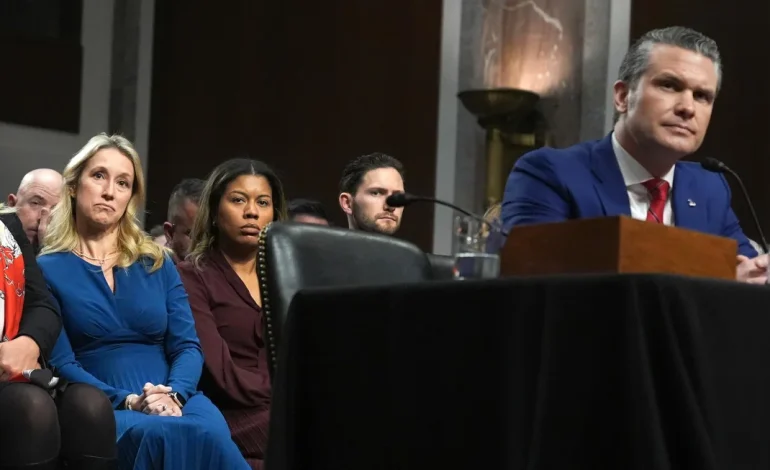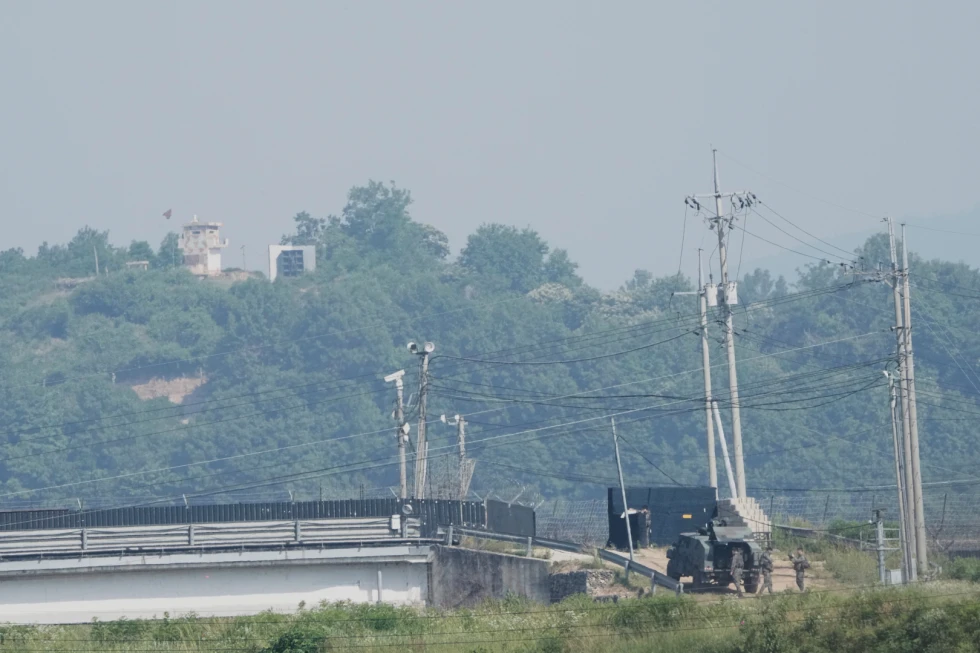Informal Role of Defense Secretary’s Wife Raises Questions at the Pentagon

The inclusion of Defense Secretary Pete Hegseth’s wife, Jennifer Hegseth, in sensitive group chats discussing military operations has drawn attention to her informal but significant presence within the Pentagon.
Although not officially employed by the Department of Defense, Jennifer Hegseth has played a visible and reportedly influential role throughout her husband’s tenure.
Recent reporting revealed that Jennifer was included in a Signal group chat alongside Secretary Hegseth, his brother, and his personal lawyer, where sensitive military actions against Houthi militants in Yemen were discussed. The chat, which originated during Hegseth’s confirmation process, reportedly remained active after his appointment. While others in the chat held official Defense Department roles, Jennifer Hegseth does not.
A Pentagon spokesperson noted that Jennifer had submitted paperwork for a security clearance, but it remains unclear if one was granted. The department declined to comment on individual clearances but emphasized she had “never attended a meeting where sensitive or classified information was discussed.” However, her participation in at least one bilateral meeting with UK Defense Secretary John Healey at the Pentagon has added to the scrutiny. Officials claimed she exited before classified discussions began.
Observers have expressed concern over the perceived informality of her involvement. While spouses often provide personal support to high-ranking officials, Jennifer’s presence at confirmation meetings and strategic discussions has been labeled “unprecedented” by both former and current government officials. A former Pentagon spokesperson remarked that her involvement in conversations potentially involving classified content is “bewildering” and noted that she is unlikely to hold the necessary security clearance or legal authorization to access such material.
The situation has raised broader questions about information security and professional boundaries. Analysts and watchdog organizations argue that Hegseth’s blending of personal and professional communication, especially through apps like Signal, could undermine trust among allies and erode institutional norms around classified information handling.
Despite these concerns, the White House has continued to support Secretary Hegseth, with President Trump calling the controversy “fake news” and attributing it to disgruntled former employees. Hegseth, for his part, insists that no classified information was disclosed and characterizes the group chat as informal coordination for media purposes.
Nevertheless, lawmakers have begun to take notice. The Senate Armed Services Committee has requested that the Defense Department’s inspector general include the new revelations in its ongoing review. Some lawmakers, particularly Democrats, have raised alarms about national security implications, while a few Republicans have called for Hegseth’s removal.
CNN, the New York Times, and the Washington Post contributed to this report.








